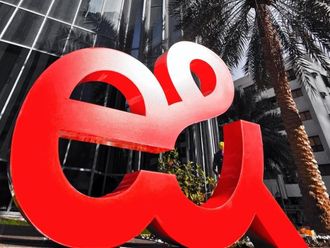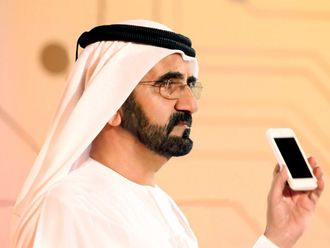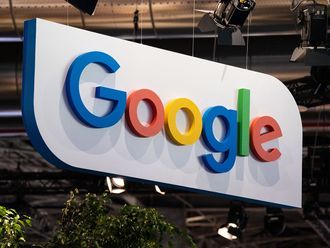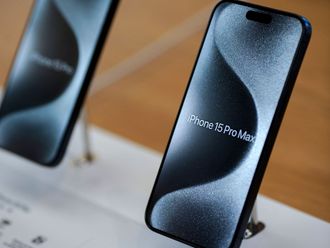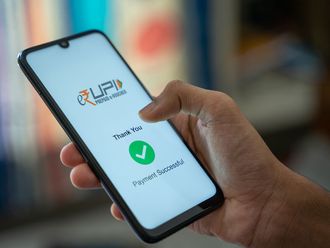Dubai: Samsung unleashed a new ‘Wave' into the Middle East mobile phone market with its proprietary operating system Bada in a bid to narrow the gap between feature-phones and smartphones.
Bada, which means Ocean in Korean, was launched as smartphones grow in popularity and application stores become the focus for manufacturers and developers.
"The growth in smartphones will be driven by increasing demand for internet-based applications, open platforms and services such as Facebook, Twitter and MySpace, which enable the consumer to enjoy accessible and relevant mobile phone and internet browsing," Sandeep Saihgal, general manager of mobile phones at Samsung Gulf Electronics, told Gulf News after unveiling two new smartphone models — Wave and Galaxy S.
According to Samsung, right now around 30 applications are available on Bada platform and by next month they plan to double the applications. Sandeep said we are in talks with localised content for each market in which the service will be available.
Samsung's Wave is a metal-bodied phone which runs on 1GHz CPU, 3.3-inch super active-matrix organic light-emitting diode (AMOLED) screen and with TouchWiz 3.0 user interface while Galaxy S, a new Android 2.1-powered smartphone, has a 4-inch super AMOLED screen. Both the phones have 5 megapixel camera and HD video recording.
Already well-known application and content providers like Electronic Arts, Facebook, Gameloft, Layer, Myspace, Twitter and applications such as Need for Speed Shift (EA), Tower Bloxx (Digital Chocolate), Weather Bug (WeatherBug), and ZAGAT TO GO (Handmark) are joining the Samsung apps Camps.
Wave will cost about Dh1,999 and Galaxy S with 16GB will cost Dh2,699. Later on, Samsung will launch Galaxy S with 8GB.
According to Annette Zimmermann, Senior Research Analyst, Mobile Devices Technology and Service Provider Research at Gartner, Samsung, which is the second largest mobile phone seller, has sold 5.6 million units in Middle East and African markets with a market share of 16.3 per cent in the first quarter of this year compared to 5.2 million and with a market share of 20.10 per cent during the same period last year. Out of this, 50,200 smartphones were sold in the first quarter of this year compared to 52,300 smartphones in the first quarter of last year.
"Samsung is confident of attaining more than 25 per cent market share in the Middle East and North Africa this year from 17 per cent last year due the smarter smartphones supporting several open operating system including Bada, Android and Windows Mobile due [to be] available this year," Saihgal said.
"By year-end we are targeting over 25 per cent growth in the UAE and over 20 per cent growth in the remaining markets — Kuwait, Qatar, Bahrain and Oman. Our average market share in the Gulf region is between 18 - 20 per cent.
He said Samsung is committed to the smartphone market, delivering a smartphone to suit any user or lifestyle.
This strategy points to delivering devices, applications and services relevant to every lifestyle to empower users with access to information and connections that produce valuable user experiences. The ‘Smart Life' concept delivers a smartphone experience that is simple, organised and integrated, he said.
Smart Life is flexible and versatile, allowing consumers to customise their experiences based on their needs. Such a philosophy embodies Samsung's drive to build a new class of smartphones that will maximise user experiences, he added.


